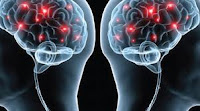Supplements prevent Alzheimer
Dietary supplements in the prevention of Alzheimer's disease: what is it?
Numerous studies have shown the interest of some tracks in the nutritional prevention of Alzheimer's disease. This degenerative disease of the brain is particularly evident in a loss of recent memory, a decline in intellectual function and progression to dementia.
Alzheimer's disease is characterized by the accumulation in the neurons of a substance, the "peptide bêtaamyloïde" form of senile plaques (amyloid).
The accumulation of this peptide promotes the formation of free radicals (harmful for neurons) is involved in the intellectual disability of the early phase of the disease as well as neuronal death.
What avenues nutrition?
Tracks nutritional prevention of Alzheimer's disease are the subject of numerous studies with input from non-pharmacological and nutritional level:
- In polyunsaturated essential fatty acids omega-3;
- Antioxidants (substances that protect cells) including vitamins C, E and flavonoids as well as B vitamins (B1, B6, B9, B12).
Track of essential fatty acids omega-3
A diet high in saturated fatty acids (bad fats of animal origin) and / or deficient in essential fatty acids and antioxidants is associated with an increased risk of decline in mental function associated with age.
Recent studies have demonstrated the protective effect of omega-3 (alpha-linolenic acid) and DHA (derived from omega-3) on the risk of cognitive decline or dementia.
Track antioxidants
The accumulation of amyloid plaques promotes the formation of free radicals (harmful to the membranes of neurons) that are neutralized by antioxidants in the body, but the brain is not provided in antioxidants.
In addition, low blood levels of vitamins C and E (antioxidants that protect cells) multiply by 2.5 to 2.9 the risk of developing Alzheimer's disease.
Studies on the effects of dietary supplements on Alzheimer's disease showed:
- Interest intakes of vitamins C and E in the early forms of the disease;
- The importance of B vitamins in the prevention of Alzheimer's disease because of their important role in the production of neurotransmitters (including acetylcholine). However, the first symptoms are accompanied by a decreased secretion of acetylcholine.
In practice
All these tracks brings nutritional nutrition experts advocate a Mediterranean-type diet or Crete.
The Mediterranean diet reduce by 13% the risk of developing dementia of Alzheimer type (Cesari F, Sofi F, Abbate R et al. Adherence to Health Status and Mediterranean Diet: A Meta-analysis. BMJ 2008 337: a1344).
Nutritional prevention of Alzheimer's disease is therefore:
- To focus on fruit and vegetables (antioxidant intakes);
- Drink at least twice per week of fatty fish from cold seas rich in omega-3 and its derivatives (DHA and EPA) that stabilize the membranes of neurons;
- Use of vegetable oils rich in good fats (olive oil, rapeseed oil, walnut oil, hazelnut ...);
- To make everyday complex carbohydrates to prevent hypoglycemia, brain unappreciated.
In case of unbalanced or deficient diet:
- Food supplements based omega-3 (fatty fish from cold seas) and certain vegetable oils "special seasoning" enriched in DHA may be useful (two tablespoons cover 50% of the recommended daily intake DHA);
- A diet rich in vitamins C, E, B1 and B6 as well as some trace elements (dose nutritional and non-pharmacological) seems interesting in the early forms of the disease as well as mental and intellectual functions.















